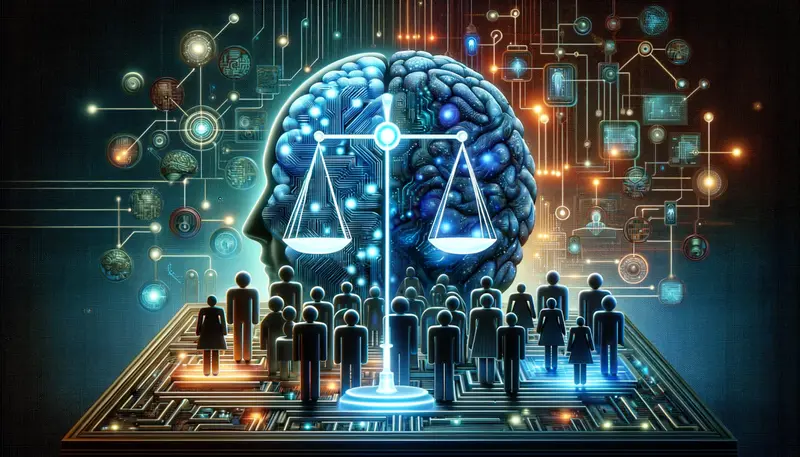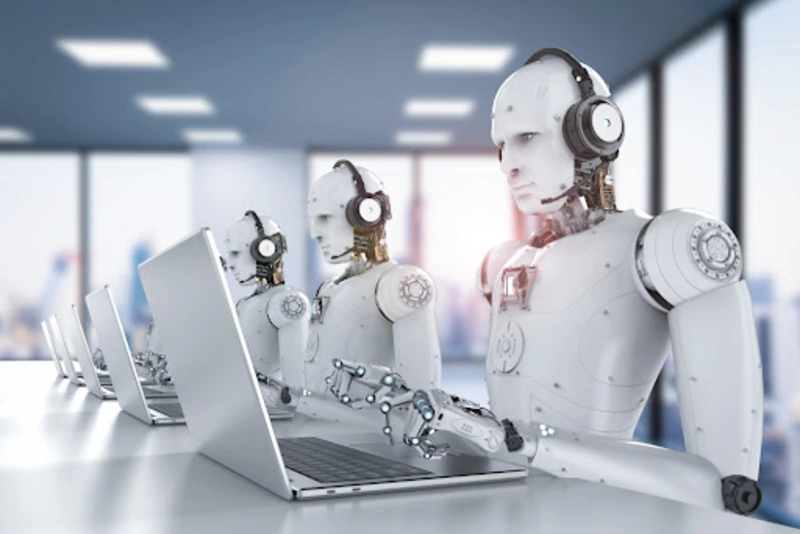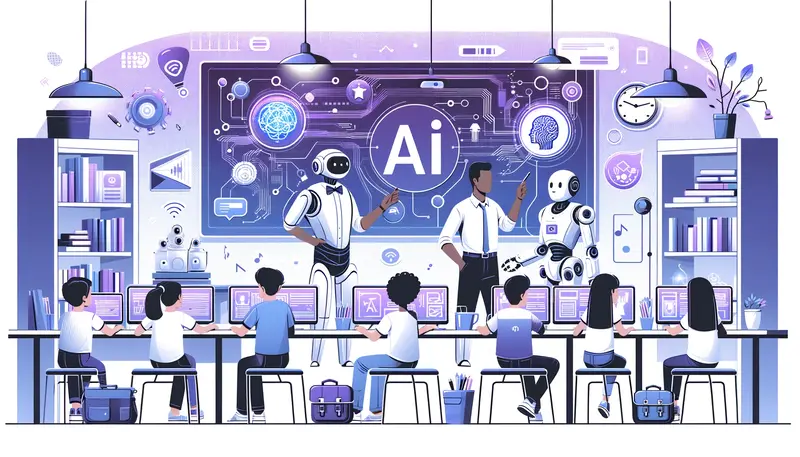Quick Link
Artificial Intelligence
Artificial intelligence is shaping the future and driving innovation and industry transformation. As 2024 approaches, artificial intelligence (AI) remains a well-known challenge, with emerging trends in various domains attracting interest and debate. This weblog explores the most well-known AI subjects, highlighting the field’s broad advancements, applications, and moral dilemmas.
Generative AI
Generative AI structures are systems that can generate text, graphics, music, and other types of material. Using technologies like GPT-4 and Stable Diffusion, generative AI has found applications in teaching, advertising, and the creative industries.
Content Creation Currently available artificial intelligence devices can create amazing articles, artwork, and even videos. This has transformed a number of businesses, including marketing, advertising, and entertainment, where the production of content is essential.
AI-generated educational content can support the development of educational materials and provide students with individualised learning experiences.
AI Ethics and Bias

The growing prevalence of AI technology has brought moral issues to light. AI structures need to be made transparent, truthful, and bias-free in order to be employed responsibly.
Fairness: Artificial Intelligence systems need to be built to treat all users equally, averting discrimination primarily based on race, gender, or various aspects.
Transparency:Understanding how Artificial Intelligence systems make choices is crucial for constructing belief. This entails creating explainable AI, which may provide information on how it makes decisions.
Bias Mitigation Identifying and mitigating biases in AI models is critical to ensure equitable outcomes.
AI in Healthcare
Artificial Intelligence has a significant impact on healthcare since it provides new tools for illness diagnosis, treatment, and management.
Drug Discovery AI quickens the detection of ability drug candidates, lowering the time and value associated with bringing novel medicines to markets.
Individualised Medical Care AI can customise treatments for each patient according to their unique genetic profiles and medical histories, improving results and minimising side effects.
Remote Patient Surveillance Artificial intelligence (AI)-powered structures are able to remotely monitor patients, providing healthcare personnel with up-to-date information and facilitating timely interventions.
AI in Customer Service

AI is improving customer service through intelligent help and task automation.
AI-powered chatbots are able to respond quickly and accurately to consumer enquiries around-the-clock.
Advanced VI assistants are capable of handling complicated tasks like scheduling and appointment scheduling, which enhances output and customer satisfaction.
AI for Social Good
Artificial Intelligence is being utilised to address several of the most critical issues in the field, ranging from disaster relief to environmental preservation.
Environmental Monitoring
AI systems can check information from multiple resources to detect ecological alterations, improving conservation effort
Disaster Response
AI can help optimize aid allocation and foresee the consequences of natural screw ups, enhancing reaction instances and effectiveness
Poverty Alleviation
Through the identification of regions of need and the efficient distribution of resources, AI-driven solutions can support humanitarian artificial intelligence initiatives.
Security and Privacy The majority of AI systems require extensive access to personal data, which presents a number of privacy and security issues. Information misuse, data breaches, and other related issues could have very negative outcomes.
By establishing data protection guidelines, laws such as the General Data Protection Regulation in Europe attempt to address this worry. But since AI technology is always developing, it will take ongoing discussion and legislation to strike a balance between privacy and advancement.
Job Displacement and Economic Impact
AI supplants human labour Certain jobs in customer service or manufacturing may become obsolete due to automation. While AI increases productivity and creates new job prospects, workers whose tasks are being automated must overcome transitional hurdles.
Thus, funding for educational and reskilling initiatives is essential to the growth of the labour force of the future. It will take a concerted effort by legislators, educators, and business leaders to ensure that the advantages of artificial intelligence are broadly distributed.
Autonomy and Control
As the AI system becomes more autonomous, concerns about accountability and control also surface. For instance, the issue of culpability in the event of errors or accidents becomes highly complex when it comes to autonomous vehicles or decision-making systems.
These problems bring up important difficulties that require the establishment of precise rules and accountability structures. At that point, public trust will be established and AI will operate within moral and legal bounds, making the use of AI technologies genuinely responsible.
Future of AI Opportunities and Aspirations
When speculating about AI’s future, innovation and quality of life are seen as having enormous possibilities. Some of the domains whereby AI is predicted to produce a surge includes:
AI has a lot to offer in the way of addressing global problems like resource management and climate change. AI-based models, for instance, can forecast changes in environmental circumstances, increase energy consumption, and promote extremely sustainable agriculture methods.
Artificial intelligence (AI) can be used to analyse data from several sources in order to generate plans for more efficient management of natural resources and a reduction in carbon footprint.
Human-AI Collaboration
AI will therefore be collaborative in the future, enhancing human capacities rather than only taking over human work from humans. Based on its recommendations and insights after taking into account numerous data studies, AI will improve human decision-making.
In this manner, well-informed choices and creative fixes for a range of issues will be imagined. Partnerships between humans and AI offer enormous potential to advance engineering, science, and the arts.
Autonomous Vehicles
The development of autonomous vehicles, including enhancements to safety, course planning, and sensor fusion, is a major area of concentration for AI research.
Combination The car’s perception of its environment is more accurate when data from a few sensors are combined.
Route Scheduling Self-sustaining vehicles can navigate accurately and successfully even in complicated areas because to advanced algorithms.
Moral Aspects to Take into Account Creating ethical frameworks for self-aware decision-making is crucial, particularly when capacity accidents are involved.
AI and Creativity
The convergence of AI and artistic fields is opening new opportunities for human-machine collaboration.
Art and Music: AI is being utilised to produce art and music, extending the boundaries of creativity and experimenting with new forms of expression.
Collaborative Tools: AI-driven equipment can help musicians and artists by providing fresh perspectives on experimentation and innovation.
AI in Education

AI is revolutionising education by offering intelligent teaching systems and personalised learning experiences.
Personalised Learning: AI systems have the ability to modify course material to match the learning styles and speeds of healthy individuals, increasing student engagement.
Artificial intelligence is still developing, which is leading to innovation across many industries and creating significant ethical challenges. It is imperative that these challenges be addressed appropriately if we are to ensure that artificial intelligence (AI) continues to be a powerful force as we investigate its possibilities. By keeping up with the most recent developments and trends, we can apply AI to improve everyone’s future.
For more content like this visit for online earning blogs visit autoearn or visit our Fcaebook page.

